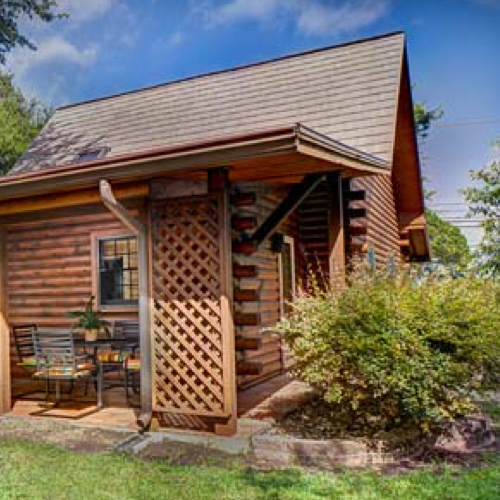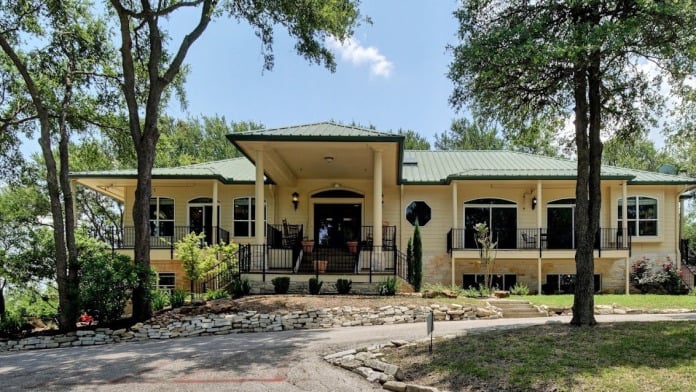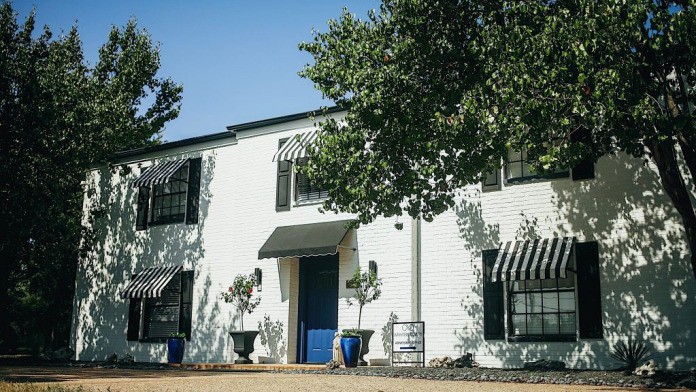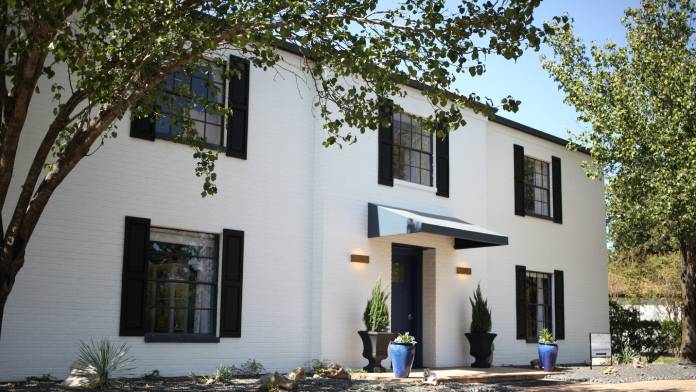About The Arbor – IOP
The clients lives on campus in a luxury environment on a sixty-seven-acre serene Texas hills landscape during recovery. Clients attend individual psychotherapy sessions as well 12-step group therapy. The Arbor specializes in working with clients who are suffering from more than one substance addiction.
Arbor’s intensive outpatient program is eight weeks long and helps clients develop a mindset that provides structure and support. Evidenced-based practices are incorporated into the program which includes 12-step concepts as well as experimental modalities that treat the whole person. Clients will attend four evening group sessions and one individual group session a week.
Aftercare is open to those who have completed their program. Alumni are invited to join the alumni network and connect with others. Former clients can attend activities and events that promote support. Additionally, there is a 12-step alumni weekly meeting for alumni to connect.
Aetna, Anthem/Elevance, Beacon Health Options/Carelon, Blue Cross, Blue Shield, and BlueCross and BlueShield. Furthermore, Cigna and Evernorth, Magellan, MultiPlan, Optima, Optum, and Oxford are also accepted. Those with out-of-network benefits should contact their provider to discuss their coverage.
Rehab Score
Accepted Insurance


Other Forms of Payment
Self-pay involves paying for treatment out of your own pocket. You can use savings or credit, get a personal loan, or receive help from family and friends to fund your treatment. If you don't have insurance or your insurance plan doesn't cover a specific program, self-pay can help ensure you still get the care you need.
Private insurance refers to any kind of healthcare coverage that isn't from the state or federal government. This includes individual and family plans offered by an employer or purchased from the Insurance Marketplace. Every plan will have different requirements and out of pocket costs so be sure to get the full details before you start treatment.
Financial aid can take many forms. Centers may have grants or scholarships available to clients who meet eligibility requirements. Programs that receive SAMHSA grants may have financial aid available for those who need treatment as well. Grants and scholarships can help you pai for treatment without having to repay.
Addiction Treatments
Levels of Care
The Arbor Intensive Outpatient Program is a structured substance abuse and mental health program designed to help clients overcome the personal issues and barriers to sobriety while allowing them to remain in their own home. Participants attend 3 evening group sessions and meet one-on-one with a counselor each week, offering the education, counseling, and support that one needs in early recovery. This allows you more independence and the ability to continue everyday activities, such as school, work, and parenting. The program is led by licensed addiction professionals, provides 10 clinical hours per week, and integrates evidence-based practices, 12-step concepts, and experiential modalities for an approach that treats the whole person.
Their Supportive Outpatient Program (SOP) generally serves as a step down program for those who complete an IOP, or for those already participating in several other resources for support, such as case management, sober living, and other therapy groups. We recommend IOP prior to enrolling in SOP, however we will conduct a thorough assessment to determine which program may best fit your particular needs.
All of the treatment programs at Arbor Behavioral Healthcare center around the 12-Step Approach to addiction recovery. 12-Step Recovery has been proven successful for more than 80 years. The 12-Step approach began in the 1930s with Alcoholics Anonymous. Over the years, this approach has proven successful for many different addictive behaviors. So much so the steps are often referred to as the “12 steps to freedom” from addiction.
Developing a continuing care plan is the main focus throughout each person’s time at the Arbor. As mentioned above, healing the mind and soul can take a long time thus it is important to plan ahead for continuous support in sobriety. Residential treatment is just the beginning of the journey. They will work with each individual to develop a custom continuing care plan that is based on several factors; such as the presence of mental health challenges, living conditions, family functioning, and willingness to change. They also include the family in the development of the continuing care plan. The family has much-needed insight on the individual’s challenges that need to be addressed within the plan. There are a number of extended care, sober living, outpatient, aftercare and alumni programs within the Arbor Continuum, allowing for the development of a continuing care plan that best serves the client and their family.
Treatments
The goal of treatment for alcoholism is abstinence. Those with poor social support, poor motivation, or psychiatric disorders tend to relapse within a few years of treatment. For these people, success is measured by longer periods of abstinence, reduced use of alcohol, better health, and improved social functioning. Recovery and Maintenance are usually based on 12 step programs and AA meetings.
During rehab in Texas, you'll deal with underlying issues that contribute to addiction. By addressing these challenges and learning healthy ways to cope with them, you'll develop strategies that help you live a drug-free lifestyle.
It is common for those suffering from addiction to also have other mental disorders. These individuals suffer from a dual diagnosis. In many cases, individuals have been abusing alcohol, drugs or both in order to medicate the symptoms of other co-occurring disorders. They utilize several strategies to treat clients with co-occurring disorders including pharmacotherapies, mindfulness meditation, nutrition, exercise, yoga, equine therapy (Natural Lifemanship), EMDR, Cognitive-Behavioral, and 12-step recovery.
Opioid rehabs specialize in supporting those recovering from opioid addiction. They treat those suffering from addiction to illegal opioids like heroin, as well as prescription drugs like oxycodone. These centers typically combine both physical as well as mental and emotional support to help stop addiction. Physical support often includes medical detox and subsequent medical support (including medication), and mental support includes in-depth therapy to address the underlying causes of addiction.
Substance rehabs focus on helping individuals recover from substance abuse, including alcohol and drug addiction (both illegal and prescription drugs). They often include the opportunity to engage in both individual as well as group therapy.
Programs
Adult rehab programs include therapies tailored to each client's specific needs, goals, and recovery progress. They are tailored to the specific challenges adult clients may face, including family and work pressures and commitments. From inpatient and residential treatment to various levels of outpatient services, there are many options available. Some facilities also help adults work through co-occurring conditions, like anxiety, that can accompany addiction.
Young adulthood can be an exciting, yet difficult, time of transition. Individuals in their late teens to mid-20s face unique stressors related to school, jobs, families, and social circles, which can lead to a rise in substance use. Rehab centers with dedicated young adult programs will include activities and amenities that cater to this age group, with an emphasis on specialized counseling, peer socialization, and ongoing aftercare.
Clinical Services
Cognitive Behavioral Therapy (CBT) is a therapy modality that focuses on the relationship between one's thoughts, feelings, and behaviors. It is used to establish and allow for healthy responses to thoughts and feelings (instead of unhealthy responses, like using drugs or alcohol). CBT has been proven effective for recovering addicts of all kinds, and is used to strengthen a patient's own self-awareness and ability to self-regulate. CBT allows individuals to monitor their own emotional state, become more adept at communicating with others, and manage stress without needing to engage in substance abuse.
EMDR is a therapeutic modality originally developed to help process trauma. In an EMDR session, a patient is prompted to undergo eye movements that mimic those of REM sleep. This is accomplished by watching a therapist's finger move back and forth across, or following a bar of light. The goal is repetitive sets of eye movements that help the brain reprocess memory, which can significantly reduce the intensity of remembered traumatic incidents. Associated memories can heal simultaneously, leaving patients significantly calmer, more stable, and more emotionally relaxed.
The Arbor Family Program is designed to address the needs of the family of the alcoholic/drug addict as they navigate the path to sobriety and healthy living. It is not uncommon for there to be a complete breakdown of communication between the suffering addict and their family. Their family program helps bridge this gap and get the entire family moving towards a healthy direction. Their Family Program is a combination of educational and therapeutic modalities. It is a three and a half day intensive program offered monthly, and is ideal for family members, partners, and significant others affected by addiction. It is lead and directed by masters-level clinicians, and is an experiential program which includes equine assisted therapy, group interaction, individual sessions and other therapeutic activities.
Group therapy is any therapeutic work that happens in a group (not one-on-one). There are a number of different group therapy modalities, including support groups, experiential therapy, psycho-education, and more. Group therapy involves treatment as well as processing interaction between group members.
In individual therapy, a patient meets one-on-one with a trained psychologist or counselor. Therapy is a pivotal part of effective substance abuse treatment, as it often covers root causes of addiction, including challenges faced by the patient in their social, family, and work/school life.
Life skills trainings involve all the skills a person must have in order to function successfully in the world. These include time management, career guidance, money management, and effective communication. Truly successful addiction recovery is based on the ability to not only live substance-free, but to thrive. Life skills teaches the practical necessities of functioning in society, which sets clients up for success in life, and therefore sobriety.
Trauma therapy addresses traumatic incidents from a client's past that are likely affecting their present-day experience. Trauma is often one of the primary triggers and potential causes of addiction, and can stem from child sexual abuse, domestic violence, having a parent with a mental illness, losing one or both parents at a young age, teenage or adult sexual assault, or any number of other factors. The purpose of trauma therapy is to allow a patient to process trauma and move through and past it, with the help of trained and compassionate mental health professionals.
Staff & Accreditations
Staff

Jim Walker
Founder

Eloise DeJoria
Founder
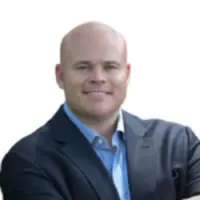
Justin Harvey
Founder & CEO
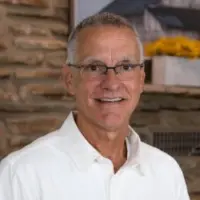
Brian Samford, PhD, LMFT, LCDC
Chief of Program Development
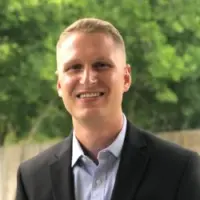
Dan Ptak
Executive Director
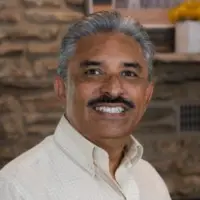
Dan Zambrano, MA, LCDC
Clinical Director
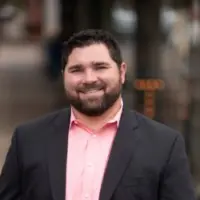
Zack Plyler
Admissions Director
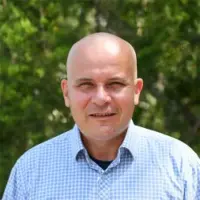
Eric Schneider, LCSW, LCDC
Intensive Outpatient Program Manager
Accreditations

The Commission on Accreditation of Rehabilitation Facilities (CARF) is a non-profit organization that specifically accredits rehab organizations. Founded in 1966, CARF's, mission is to help service providers like rehab facilities maintain high standards of care.
CARF Accreditation: Yes
Contact Information
6448 East Highway 290
Suite E
Austin, TX 78723
